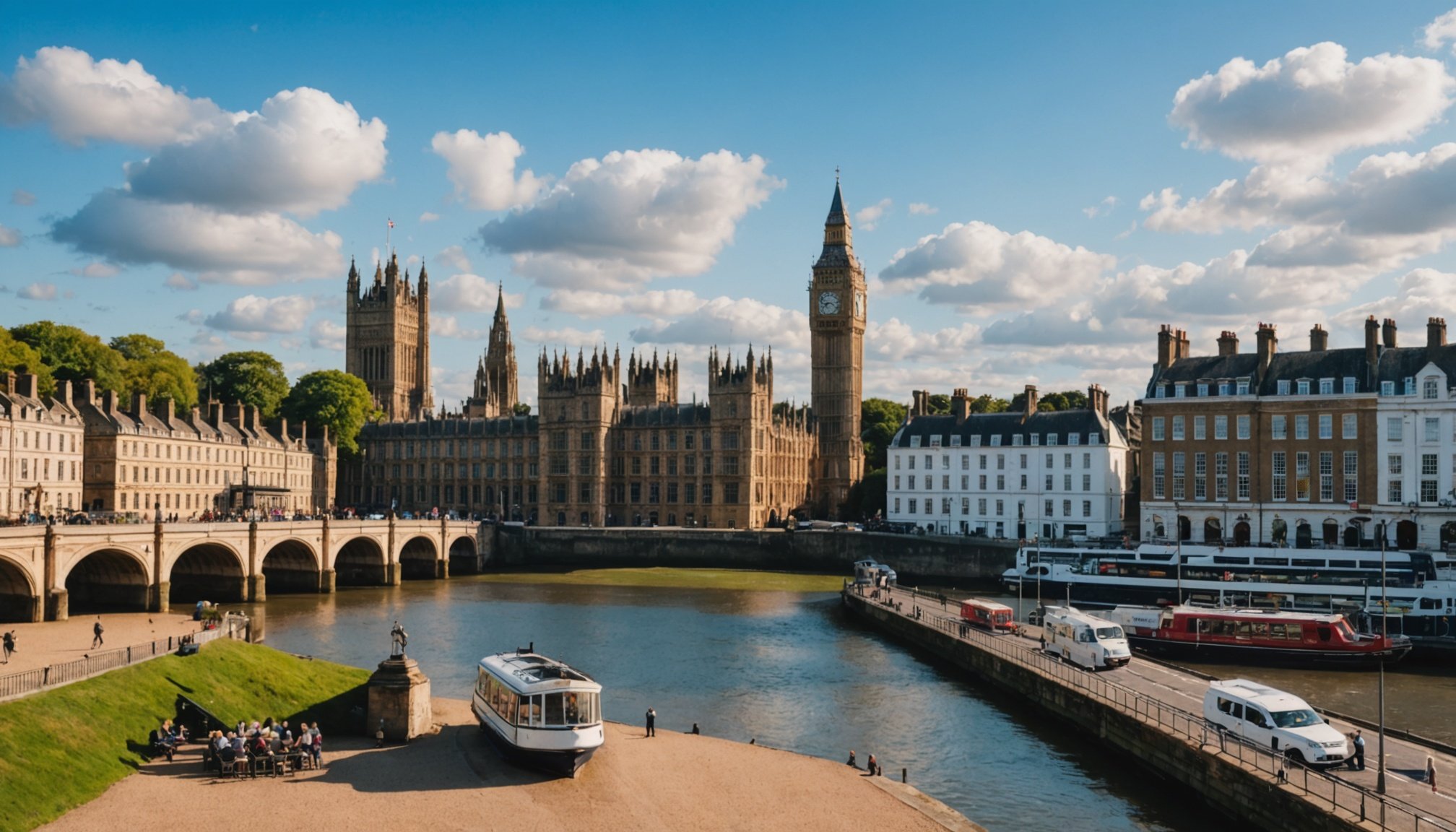Creative Marketing Strategies for Local Tourism
As post-pandemic tourism begins to flourish, local travel campaigns have undergone a notable transformation, particularly through innovative tourism marketing strategies. Successful campaigns that notably boosted local tourism often tap into unique local experiences, focusing on the distinctive charm of their destinations. By targeting specific audiences, these campaigns effectively draw attention to lesser-known attractions, raising interest and engagement.
A crucial component is the use of audience targeting strategies. Tools like geographic and demographic filters allow marketers to reach potential travelers more accurately. By segmenting audiences based on interests and preferences, campaigns can be tailored to resonate with specific groups, thus enhancing overall effectiveness.
Also to discover : Design realistic book mockups effortlessly and engage readers
Role of Social Media and Digital Advertising
Social media platforms have become indispensable in local travel campaigns, offering a powerful medium to engage with potential travelers. Using visually appealing content and interactive features like polls or stories, these platforms can foster a sense of community and excitement about destinations. Digital advertising further amplifies this reach, utilizing data analytics to refine and optimize campaigns continually.
Ultimately, by integrating these tools and embracing digital innovation, local tourism can thrive even in the face of modern challenges, ensuring communities receive the support they need through increased visitor engagement.
Understanding Consumer Behavior Shifts
In recent years, changing travel preferences have seen a notable tilt towards staycations and local experiences. Consumers are favoring destinations closer to home, driven by a mix of convenience and safety concerns. This shift has led to a surge in domestic tourism trends, as travelers explore nearby locales that promise both adventure and reassurance.
Amid these changing preferences, health and safety concerns have become pivotal in shaping travel decisions. Travelers are now more mindful of hygiene practices, opting to visit places that emphasize safe environments. This behavior shift has placed pressure on the industry to uphold rigorous standards, influencing everything from hotel accommodations to transportation services.
Transparency and trust have also emerged as crucial factors in tourism advertisements. Consumers demand clear information about safety protocols before they make choices. For instance, knowing how a destination handles hygiene and social distancing can significantly impact decisions.
Incorporating these consumer insights allows businesses to adapt more effectively, providing travelers with experiences that meet their evolving needs. By prioritizing transparency and aligning with changing preferences, the tourism industry can enhance consumer trust and retain loyalty during these shifting times.
Collaboration with Local Businesses
Strengthening community partnerships between tourism boards and local businesses is essential for enhancing the tourism experience. One successful case study is the collaboration between the tourism board of Bath, England, and local B&Bs. By promoting these accommodations as part of holistic tourism collaborations, they not only increased bookings but also featured unique local flavours. Tourism boards can further bolster local business support by partnering with restaurants to create themed culinary tours, showcasing the region’s distinct culinary heritage.
Integrating local attractions into marketing strategies can amplify regional appeal. For example, promoting exclusive tours of a family-run vineyard or a historically significant site can enrich tourist experiences and support local businesses. Creating a consortium where hotels offer discounts for partnered boutiques or attractions can also boost community partnerships.
Effective communication is the cornerstone for any successful partnership. Hosting regular meet-ups and workshops for local businesses helps maintain an open dialogue. Similarly, creating an online platform dedicated to local business support and updates ensures all parties stay informed about new initiatives. Strengthening this relationship through consistent communication ensures that both the tourism board and local businesses thrive together.
Engaging Community Involvement
Community engagement plays a pivotal role in bolstering local tourism by involving citizens directly in promotional efforts. Initiatives that encourage citizen participation, such as local tourism ambassador programs, not only foster regional pride but also help to enhance the overall tourism experience. By engaging residents in promotional activities, communities can create authentic experiences that attract visitors seeking genuine local culture.
One effective strategy is to offer volunteer opportunities in tourism development. This approach not only harnesses the community’s unique insights and talents but also cultivates a sense of ownership and pride among local residents. Citizen participation in crafting tourism offerings ensures that the region’s heritage and values are accurately represented, providing visitors with a more meaningful connection to the area.
Moreover, community engagement can be scaled through ambassador programs where volunteers act as guides or information resources, enriching the visitor experience with personal stories and insider knowledge. These programs strengthen the community’s role in tourism, making it a collective effort and increasing local tourism support. Collaboration between citizens, local businesses, and tourism boards through such initiatives results in empowered residents and thriving, sustainable tourism.
Implementing Sustainable Practices in Tourism
As sustainable tourism becomes increasingly popular, many travelers post-pandemic are prioritizing eco-conscious journeys. This shift reflects a growing desire to explore the world responsibly and minimize negative impacts on the environment.
Tourism boards can promote eco-friendly initiatives to meet these preferences effectively. Encouraging accommodations to adopt practices like waste reduction and energy efficiency can make a significant difference. Supporting responsible travel can mean partnering with local businesses that offer eco-friendly experiences, such as guided nature tours that leave no trace.
Moreover, the role of education and awareness in cultivating responsible tourism cannot be understated. When travelers are informed about the local environment and cultural protocols, they are more likely to respect and protect these elements. Providing easily accessible resources or workshops at tourism hubs can empower visitors to make informed decisions that benefit the destinations they explore.
With the right emphasis on sustainable tourism, tourists can enjoy enriching experiences, whilst supporting conservation efforts. The growing trend for mindful travels suggests an evolving consciousness. This attitude will likely become a defining feature of the travel landscape of the future.
Future Trends in Post-Pandemic Tourism
As the world emerges from the pandemic, tourism trends are rapidly evolving to accommodate new travel desires and safety expectations. These travel innovations are set to transform how we explore and engage with our surroundings. Future travel behaviors indicate a rising interest in local and regional trips, as many travelers now prefer destinations closer to home.
Local Tourism and Tech Innovations
Local tourism trends suggest a surge in demand for unique and personalized travel experiences. Incorporating technology can significantly enhance these experiences by providing tailored recommendations for attractions, dining, and more. For instance, app-driven guides and virtual reality tours are reshaping the way travelers plan and enjoy their trips.
Catering to Personalized Experiences
Travelers increasingly seek experiences that cater to their individual preferences. The future of travel behaviors leans towards offering customized itineraries based on personal interests. Businesses that harness digital tools and data analytics can create more appealing and diverse travel options, enriching the overall tourist experience.
The synthesis of innovative technologies with personalized offerings will likely redefine the landscape of post-pandemic tourism, ensuring that travelers feel both safe and inspired on their journeys.






